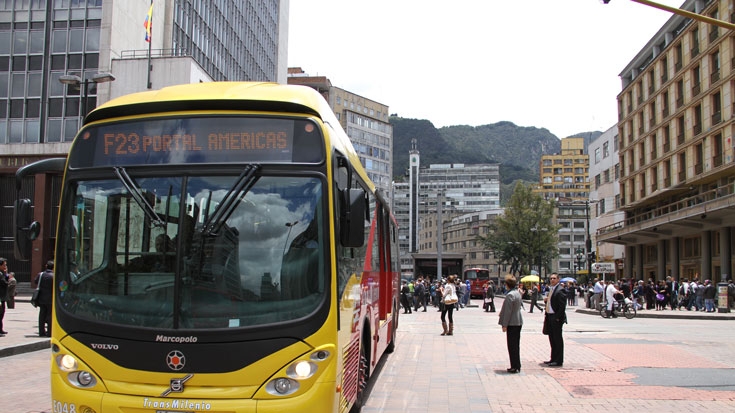This grant helped initiate and sustain high-level and technical dialogue on coordinating transport and climate change policies and plans with a number of Latin American cities. Examples include:
- In São Paulo, the grant supported discussions on urban freight management and city and state plans to mitigate greenhouse gas emissions from transport through policies in freight transport and urban development;
- In Belo Horizonte, the grant activity has influenced the preparation of the municipal climate change law adopted in May 2011.
Challenge
The transportation sector is currently responsible for more than one-third of the carbon dioxide (CO2) emissions in Latin America, and is the fastest growing sector. The International Energy Agency projects that worldwide CO2 emissions from vehicles will increase by a factor of 2.4 (or 140%) from about 4.6 gigatons in 2000 to 11.2 in 2050. Urban transport represents a key sector for long-run greenhouse gas mitigation efforts.
Latin American cities are rapidly growing and about 80% of the people currently live in urban areas concentrating most of the vehicle kilometers of travel. The increasing use of motor vehicles not only generates additional emissions (principally CO2), but also results in growing air pollution and associated health impacts, increased congestion, more accidents and reduced competitiveness of cities.
Solution
To mitigate greenhouse gas emissions from the transport sector, it is important to mainstream environmental concerns into sector policies, programs, and investments. This grant aimed to provide technical assistance to regional policy makers in generating, integrating, disseminating and monitoring high-level knowledge on reducing greenhouse gases, while laying the groundwork for practical and integrated solutions to sustainable urban development and transport mobility.
Results
The grant provided technical assistance to more than 11 cities in Latin America to advance approaches for sustainable transport planning and development. A Regional Conference was held in Rosario, Argentina that hosted well over 100 experts and representatives, and resulted in a “Declaration on Urban Accessibility and Sustainable Mobility Principles.”
The grant financed several activities, reports and knowledge generation instruments. These include:
- An expert meeting on transport and the environment
- Workshop and tools on integrating land use transport modeling and monitoring strategy on climate change plans and progress
- Development of a Pilot Integrated Low Carbon Municipal or Metropolitan Strategy
- Regional Sustainable Urban Transport Flagship Workshop
- Follow-up clinics on transport and urban planning integration in Mexico and Belo Horizonte, Rio de Janeiro and Sao Paulo in Brazil
- Development of a website as a repository of all knowledge produced.
- In Rio de Janeiro, the grant supported the development of a monitoring strategy for greenhouse gas emissions and tools.
